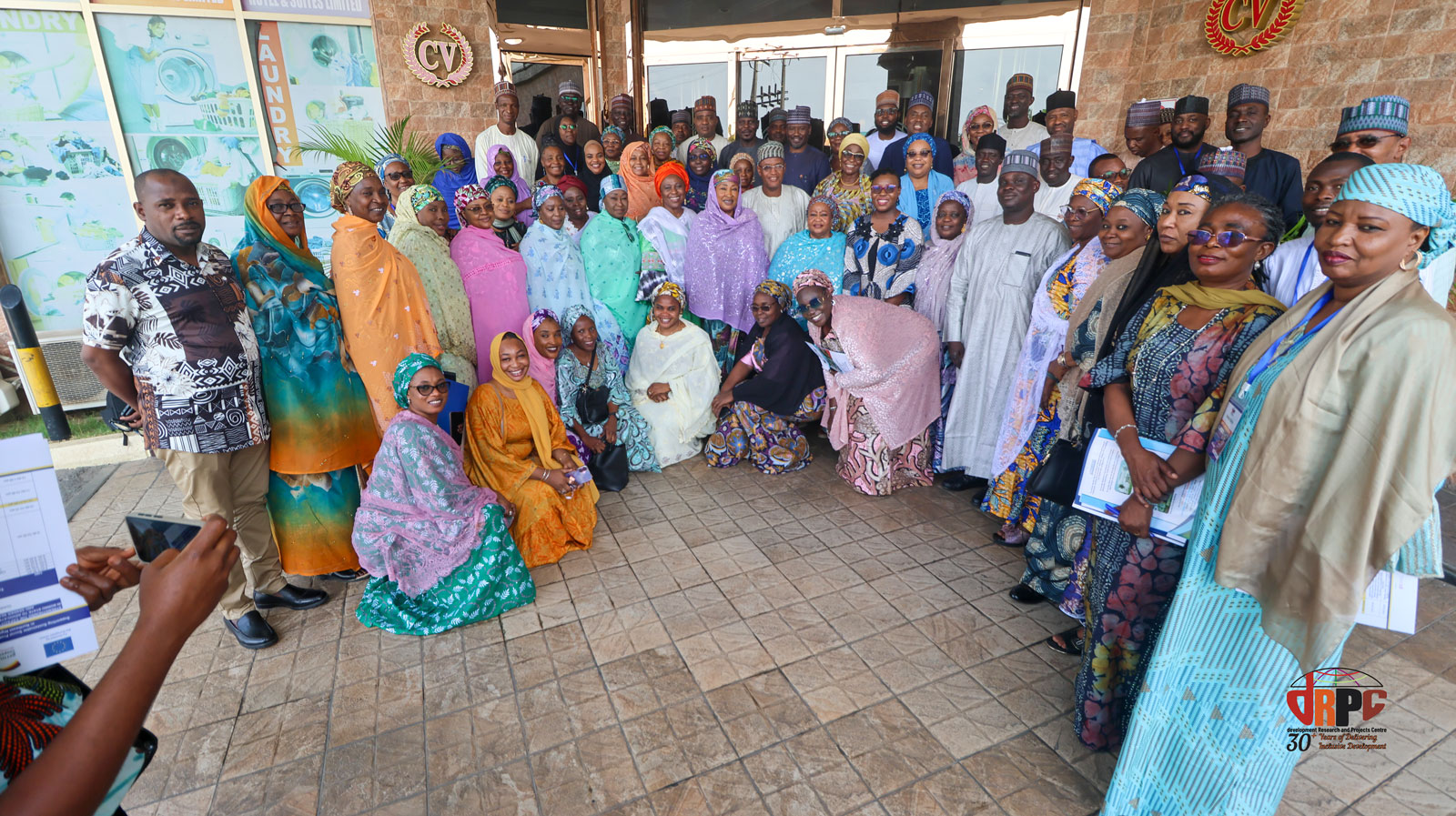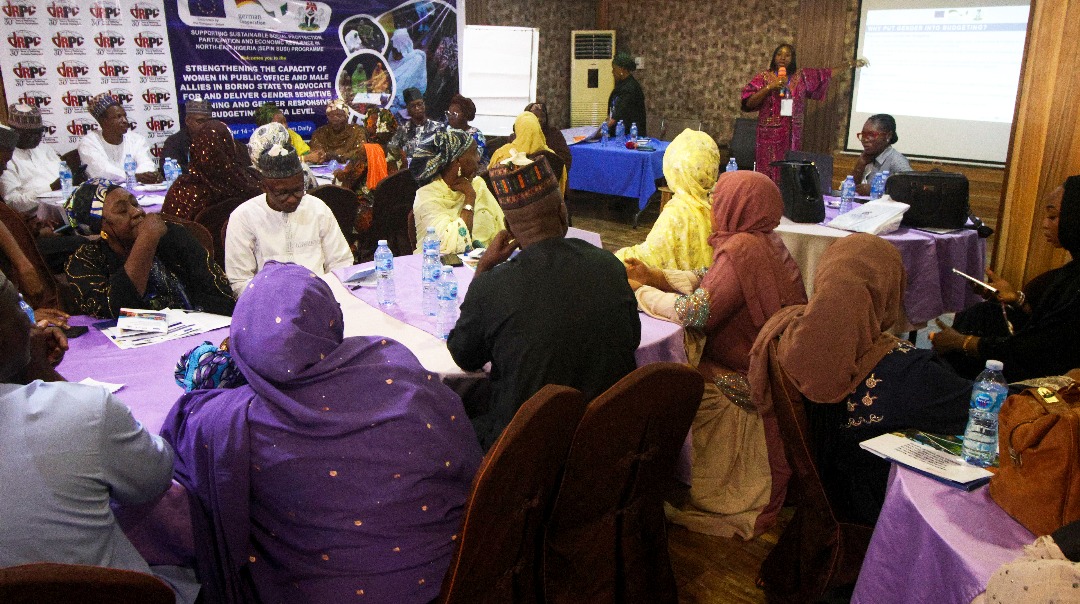In partnership with the German Federal Ministry of Economic Cooperation and Development (BMZ and co-funded by the European Union, and the Deutsche Gesellschaft für Internationale Zusammenarbeit (GIZ), we facilitated a 3-day training workshop in Abuja focused on “Strengthening the Capacity of Women in Public Office and Male Allies in Borno State to Advocate For and Deliver Gender-Sensitive Planning and Gender-Responsive Budgeting at the LGA Level.”
The workshop brought together female political actors, male allies, policymakers, and civil servants from Borno State, with the aim of enhancing their technical knowledge and advocacy skills to promote gender-responsive planning and budgeting at the local government level.

Opening Ceremony
Declaring the workshop open, Dr. Salma Anas Ibrahim, Special Adviser to the President on Health, commended the initiative and reaffirmed the Federal Government’s commitment to advancing women’s leadership and inclusion in governance. In her words, “Women are not a threat. They are partners in progress.”
She emphasized that empowering women to take active roles in public life strengthens governance, improves policy outcomes, and enhances democratic accountability at all levels.
The opening ceremony was graced by notable figures, including Rt. Hon Engr Musa Askira Abdullahi, Deputy Speaker, Borno State House of Assembly; Alh. Hamza Muhammed*, Permanent Secretary, Borno State Ministry of Women Affairs and Social Development; Prof. Ibrahim Umarah from the Department of Political Science, University of Maiduguri; Mrs. Aisha Ibrahim, National President of the Nigeria Association of Women Journalists (NAWOJ); and Dr. Asabe Vilita Bashir, Director-General of the Maryam Babangida National Women Development Centre.
Interactive and Participatory Sessions
The workshop featured a range of participatory sessions and practical exercises. Participants explored topics such as:
- Legal and policy obligations of government to mainstream gender in planning and budgeting;
- Gender-responsive budgeting (GRB) and how it drives inclusive local development;
- Working with men as allies to promote women’s participation in governance;
- Challenges and opportunities for gender-responsive planning in conflict and post-conflict settings.
Facilitators led highly interactive discussions that encouraged collaboration, peer learning, and critical reflection on how participants could apply these lessons in their various roles within Borno State’s governance structures.

Building Momentum for Inclusive Local Governance
Over the course of three days, participants shared their experiences and developed actionable strategies for improving the responsiveness of local government budgets to the needs of women and girls. The workshop also emphasized the importance of partnership between male allies and female leaders to foster inclusive governance that leaves no one behind.
The event reflects dRPC’s ongoing commitment to strengthening institutional capacity, promoting women’s leadership, and advancing gender-responsive governance in Nigeria, particularly in conflict-affected regions such as Borno State.

